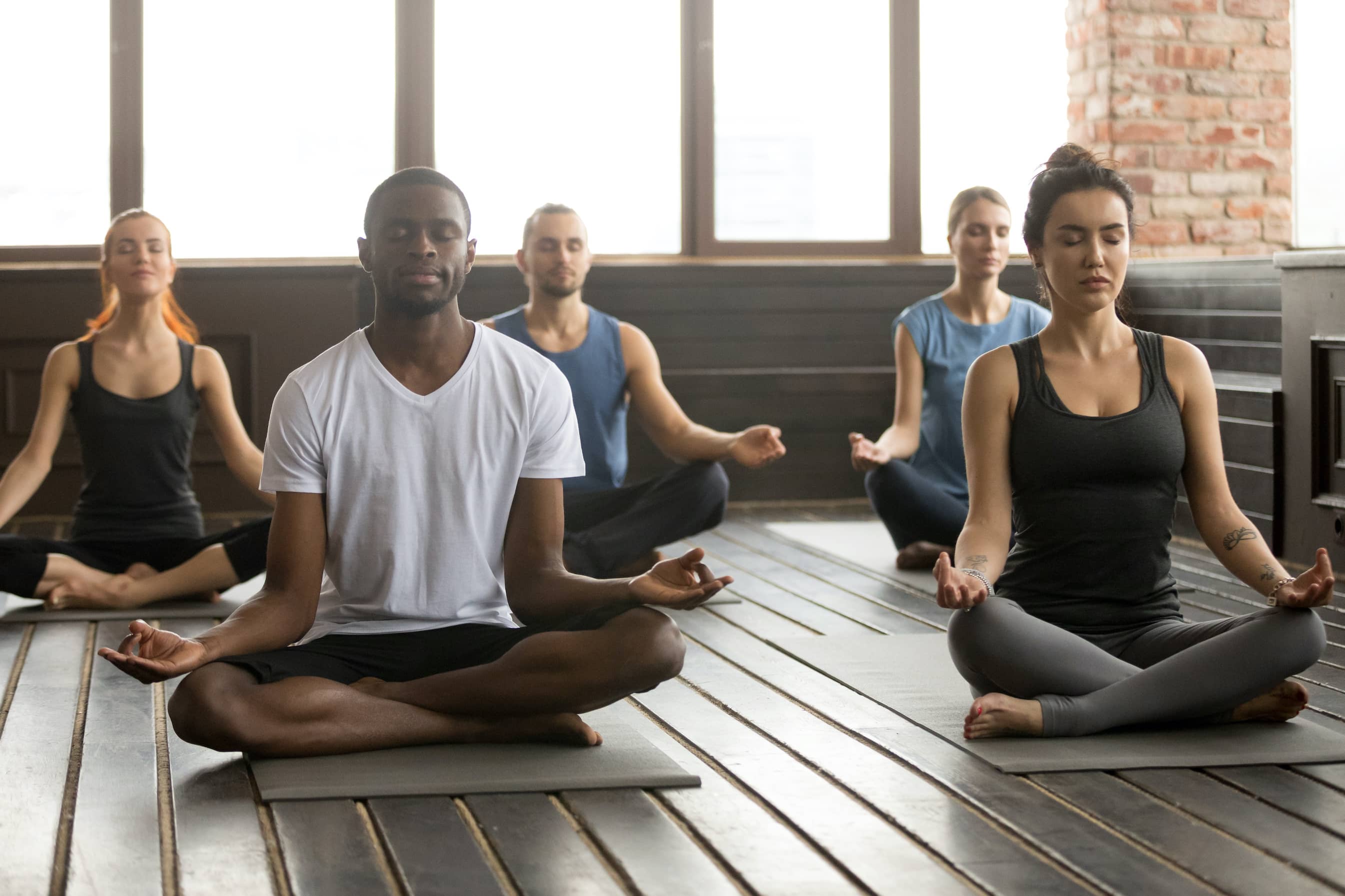Have you ever paused to consider the small moments that bring a smile to your face?
Can savoring these joyful moments be a key to a more fulfilling and happy life?
You bet!
Practicing gratitude is a magic bullet.
Estimated reading: 5 minutes
 Heartmanity is proud to partner with outstanding companies that we wholeheartedly recommend so this post may contain affiliate links. As an Amazon Associate, I earn from qualifying purchases. You can read our full disclosure here.
Heartmanity is proud to partner with outstanding companies that we wholeheartedly recommend so this post may contain affiliate links. As an Amazon Associate, I earn from qualifying purchases. You can read our full disclosure here.
Some might consider gratitude simply etiquette of saying 'thank you.' However, it's so much more!
Whether you’re looking to add a spark to your life or you’re going through a rough patch and need some encouragement, you’ll be inspired by the power of a gratitude practice!
Let's explore how practicing gratitude can lead to profound changes and look at the science behind gratitude. (Promise not to bore you!)
Related reading: "5 Ways Brain Fitness and Behavioral Health Are Optimized by Healthy Habits."
The Science of Gratitude
Why is gratitude so impactful? The obvious answer is, "It feels good to give thanks."
But let's dig deeper and examine the science.
An insight into the origins of gratitude is written in “A Little Goes a Long Way."
Behaviorally, gratitude is a prosocial trait and state: It motivates individuals to engage in prosocial behaviors to reciprocate the assistance they receive from others.
Mother Nature was super savvy in designing our brains to ensure we'd survive as a species!
The very roots of appreciation come from our need for social bonding and safety. Whenever we express gratitude or appreciation, our brains release pleasure chemicals that reward us for social behaviors.
Neuroscientific research shows that gratitude activates brain regions linked to dopamine, a pleasure neurotransmitter, and oxytocin, the love drug. These chemicals urge us to assist others and whenever appreciation is expressed, both the receiver and the giver get a surge of pleasure.
Safety is a top priority since we are safer in a tribe or community. Therefore, the concept of social motivators, A.K.A, gratitude, was programmed into our wiring.
An extra bonus: Focusing on the positive can rewire our brains and foster a deeper appreciation for the good in our lives.
Think of the potential of this practice!
This superpower can change your life!
Gratitude also boosts our mood and motivates us to seek more positive experiences, creating a habit of gratitude and appreciation.
Whoever knew one emotion could hold so much impact!
There are also tangible physical effects. The National Institute of Health suggests consistently practicing gratitude lowers stress and depression. Acknowledging and cherishing the positives in our lives shifts our focus to assets, creating a sense of abundance and fulfillment.
Gratitude activities correlate with benefits and tangible physical health improvements, as also shown by Positive Psychology research. It can help:
- Quality of sleep.
- Reduce inflammation.
- Heart health improvement.
What about emotions and connections? UC Berkeley research indicates that gratitude increases personal happiness and strengthens interpersonal connections. A grateful attitude encourages stronger bonds and a more nurturing, cooperative community.
Is there anyone who doesn’t love being acknowledged, valued, and appreciated!?
A frequent flyer of Heartmanity is appreciation feasts. Whether I’m working with a couple, a family, or a company’s team, I lead an exercise where each person publicly appreciates each other! I have to be sure to leave PLENTY of time because everyone loves it so much, they want to keep going... and going… and going!
Practicing gratitude transcends a feel-good ritual. It's a transformative process that restores neural pathways, mends hearts, and elevates spirits. Gratitude opens us to joy, resilience, and interconnectedness, establishing a foundation for a content and peaceful life.
To practice gratitude here are some wonderful gratitude exercises.
Benefits of Gratitude: Be Inspired by These Stories of Gratitude
Shealing and Marcus's stories illustrate the life-altering power of gratitude and show how even a little goes a long way.
"Shealing's journey: healing with gratitude"
As Shealing faced the challenge of her husband's sudden disability, it brought back painful memories of her own difficult childhood. This recollection made her realize the importance of taking care of herself, especially considering how her mother struggled and eventually passed away in a similar situation. Shealing understood that she needed to prioritize her well-being to avoid the same fate.
Meditation led her to gratitude, which was an unexpected answer for her.
Initially skeptical about gratitude, Shealing was desperate for a lifeline. Slowly, she noticed signs of gratitude in her everyday life, prompting her to strengthen her practice through a gratitude app. This ritual wasn't just an acknowledgment of the good; it involved creating mantras to feel and express gratitude, especially during her husband's recovery from illness.
Practicing gratitude helped her navigate her challenges and unlocked a pathway to healing old wounds. The bitterness and resentment from her past faded, replaced by peace and acceptance.
Today, Shealing is thriving and on a mission to spread the power of gratitude. Her journey from pain to healing and empowerment is a testament to gratitude's transformative power and offers hope for those facing their own battles.
"Marcus discovered a newfound appreciation for life."
In this story, Marcus shares his journey from a life-threatening drug addiction to gratitude and fulfillment. He recounts how his addiction made him ungrateful, leading to severe depression and suicidal thoughts.
At his lowest, Marcus turned to a fellowship that recommended starting with a gratitude list as a step toward recovery. Skeptical, he began listing simple things like having a roof over his head and food to eat despite his addiction.
Marcus persisted with his gratitude practice and began noticing more things to be thankful for. This gratitude habit gradually transformed his mindset from negativity to gratitude and appreciation for life. The shift played a crucial role in his recovery, enabling him to get clean without medical assistance, which he added to his gratitude list.
Marcus now enjoys a life filled with love, friendship, and a newfound appreciation for every moment, contrasting his previous state of hatred and anger. His story is another testimonial to the transformative power of gratitude, leading from darkness to joy and fulfillment.
These experiences showcase the immense potential of gratitude, which can guide us toward a more fulfilled existence.
Finding Things to Be Grateful for Yourself
Self-gratitude improves confidence and well-being while cultivating a positive outlook on life. One way to appreciate yourself and the good in your life is to recognize, acknowledge, and appreciate your successes and abilities—big and small alike.
Here are a few ways to find things to be grateful for:
Reflect on Your Achievements
Completing a work project, overcoming a personal challenge, or trying something new can boost your self-confidence and self-worth.
Take time to appreciate your accomplishments. Don’t just move on to the next thing; serotonin, a positive neurotransmitter, is released whenever we complete a goal, contributing to a better outlook. If you take time to revel in your achievements, you capitalize on the natural highs doled out by the brain.
 Embrace Your Strengths
Embrace Your Strengths
Identify what you excel at and embrace these qualities. Everyone has unique talents. Whether it's making people laugh, creativity, or problem-solving, appreciating your strengths builds a positive self-image and enhances self-esteem.
Consider writing a list of twenty-five to fifty personal assets, traits, and attributes you’re proud of. Whenever I assign my clients this list, they balk. Most don’t think they can come up with ten but are pleasantly surprised when they reach the higher count!

 Practice Self-Care
Practice Self-Care
Self-love involves physically, mentally, and emotionally caring for yourself. Engage in activities and hobbies that bring you joy. Prioritize exercise, a mindfulness practice, or time for a fulfilling hobby. Carve time for socializing with friends and family. If you enjoy travel, set aside a budget for it and pick some destinations.
As I write, my husband and I are returning from ten days in the Bahamas with our family. What a wonderful, memory-packed time with our children and grandchildren!
Remember, downtime is just as critical as work and service.
Cultivate Positive Self-Talk
Pay attention to the way you talk to yourself mentally. Is your inner critic in charge, or are you?
Replace critical thoughts with encouraging self-talk, affirmations, and self-compassion. Treat yourself kindly. If you wouldn’t talk to a good friend the way you talk to yourself, it’s a sign that you may be too harsh on yourself. A vital shift occurs when we acknowledge our efforts and progress rather than focusing on perceived shortcomings.
What if your internal environment could feel like a relaxing day at the beach? With self-compassion and positive inner dialogue comes spaciousness and peace.
Intentionally Appreciate Your Daily Experience
Life is a continuous path of self-realization and growth. Take a step back regularly and appreciate how far you've come. Recognize the challenges you've overcome and the lessons you've learned. Each experience has shaped you, and you have shaped your experiences.
One of my most freeing moments was letting go of the feeling that "someday, I would arrive.” When I focused on being present in every moment with love and gratitude, it didn’t matter what I was doing; I was content. I left behind the habit of pushing myself. Now, balancing my desire to be “every day better” with immense self-acceptance, gratitude, and inner peace is a natural state of being.
The only thing guaranteed is now. Live in the now. Work at appreciating everyday experiences, even when challenging.
Contemplating these elements of your life can help you appreciate life more and you'll learn to love yourself better.
How to Practice Gratitude Successfully
Practicing gratitude is a powerful tool for processing emotions and changing attitudes.
But how do we ensure that gratitude sticks?
The key is consistency and emotional elevation. Integrating gratitude into our daily lives requires constancy. The brain only values what we repeat. And like with any habit, it takes time and repetition to give new behaviors sticking power until they feel like second nature.
Set aside a specific time each day to reflect on what you're grateful for. It could be in the morning, at lunch, or in the evening after dinner or before bed. It’s easier if you create a practice at the same time every day. Pick the time you’re most likely to follow through successfully.
Then, as much as possible, strive for regularity. This way you train your mind and heart to focus on the positive aspects of your life. Don’t be surprised if your mind gravitates to complaints at first. Just ask, “What’s good about this ? Find one small slice to be grateful for.
For instance, if it’s raining on your vacation and you were hoping for sunshine and fun, perhaps you could be grateful for the cozy time inside playing games together. Or maybe, you need more relaxing time, and the weather is reminding you to slow down.
Tips to Increase Gratitude
Another important aspect of gratitude practices is emotional elevation.
Don’t just list things you’re grateful for. Deliberately conjure up positive emotions. Put yourself in the mindset to deeply feel joy, love, and appreciation that gratitude evokes. This deeper connection strengthens the impact of gratitude on your well-being.
In this 48-Day Gratitude Journal, the author does a great job of connecting us to our senses, which helps to enhance the effectiveness of a gratitude practice. Its simple and straightforward layout includes mindfulness exercises that take very little time but hold the potential for greater inner peace and serenity.
Elevated emotions are a key part of the power of gratitude.

Here are a few more simple tips you can add to your day to increase gratitude:
-
Keep a gratitude journal.
Write down three to five things you're grateful for daily. These could be as small as sipping a cup of excellent tea or receiving a kind gesture from a friend. Writing the items down solidifies and anchors your gratitude and lets you revisit them later. You can also download many gratitude apps.
If you like versatility, want to write on lines, and pick your own color and size, this leather journal is a perfect fit. It will give you plenty of room for jotting down appreciation. -
Show appreciation to others.
Thank the people around you. Expressing appreciation could be a handwritten note to a friend who helped with the kids, a phone call, or simply telling someone how much they mean to you. This small action strengthens your relationships and reinforces gratitude. Another benefit is both the giver and receiver get a nice dose of oxytocin that bonds and uplifts.
A personal experience I had many years ago was a San Diego trip to visit my aunt who was climbing into her 80s. While she was playing bridge with her friends on one of the last days of my visit, I cut several 8½ x 11-inch pieces of paper into small strips. On each strip, I wrote a message of appreciation and love. Then I hid them around her apartment. She was tickled and told me that each time she would discover a message, there would be this sunburst of love she felt. And the best part: she was still finding them two years later!
One of the most worthwhile fifteen minutes I’ve ever spent! -
Practice gratitude during challenging times:
When faced with difficulties, intentionally seek out things to be grateful for. It could be an insight about yourself, finding lessons learned from the experience, or acknowledging the supportive people who show their love. Shifting your focus to gratitude can help you navigate life's more difficult situations and build resiliency to carry you through hard times.
Start small and make your gratitude practice manageable. Don't overwhelm yourself with grand gestures or expectations. Remember, you want to create a sustainable practice that transforms your attitude and emotional well-being.
Final Thoughts
Let’s keep this simple: Gratitude enhances joy and inner peace. It's scientifically proven.
Your life can change for the better simply by shifting and expressing gratitude. Too simple?
I dare you to try an experiment for one month!
Ask yourself right now, what are you grateful for?
Your practice starts now. If you don’t begin now, you’ll finish reading this blog, perhaps inspired, but life will carry you away and good intentions will wither.
Gratitude is a choice, a decision, a slight turn of the dial of our hearts.











